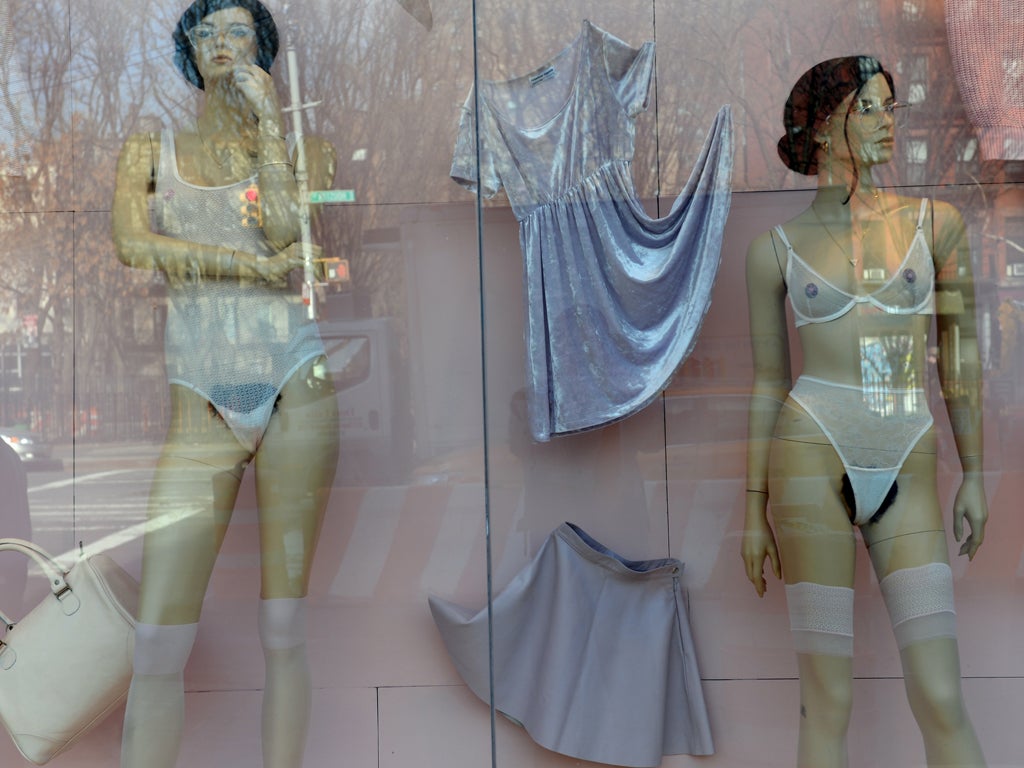Cameron Diaz is wrong about pubic hair. The bush is not back
Let me wax lyrical about permanent pubic hair removal

Your support helps us to tell the story
From reproductive rights to climate change to Big Tech, The Independent is on the ground when the story is developing. Whether it's investigating the financials of Elon Musk's pro-Trump PAC or producing our latest documentary, 'The A Word', which shines a light on the American women fighting for reproductive rights, we know how important it is to parse out the facts from the messaging.
At such a critical moment in US history, we need reporters on the ground. Your donation allows us to keep sending journalists to speak to both sides of the story.
The Independent is trusted by Americans across the entire political spectrum. And unlike many other quality news outlets, we choose not to lock Americans out of our reporting and analysis with paywalls. We believe quality journalism should be available to everyone, paid for by those who can afford it.
Your support makes all the difference.“DON’T ELECTROCUTE MY CLIT!”, I screamed as I writhed on the table. I wrenched off my goggles, panting, before the bemused beautician lowered the Intense Pulsed Light laser gun. “Don’t worry, it will be fine”, she said, before duly zapping away at my crotch. It was hot, prickly and weird, but it was nothing like the James Bond scene I’d had in my head, and the first IPL session to permanently remove my pubic hair was over in less than five minutes.
This week pubic hair was back in the public eye, with many columnists cheering Cameron Diaz’s new book and her claims that trying to get rid of one’s pubic hair “is like saying ‘I don’t need my nose’.” As Diaz praised the natural look, and US store American Apparel put pubic hair on mannequins, feminists celebrated that those much-maligned little black hairs were once again being fought for and that 2014 might be the Year of the Bush.
It’s a cruel analogy, but the staunch defence of hairy fannies reminds me of very overweight over-eaters who say they’re “happy as they are”. What I think they mean is that they’re happy to remain overweight because it’s preferable to denying themselves lots of delicious food. But if people could eat whatever they wanted without gaining weight, they’d do so in a heartbeat.
When women say pubic hair should be left untamed, I take this to mean that they’d prefer to not to have the extreme pressure, shame or embarrassment society makes us feel for having it, while simultaneously wanting to avoid the costly and torturous battle of constantly trying to keep it at bay. But what if women could have their metaphorical cake and eat it? What if the hassle of removing body hair was no longer a valid argument in the debate? If you could wave a magic wand and be hair free for life, would you keep your pubes or banish them?
That magic wand is already here, in the form of a deceptively threatening-looking laser gun. Technology and voucher websites mean that for under £120 - the price of five waxes or sixty razors, say - and six sessions of less than five minutes each, you can be hair free permanently.
I can hear the inevitable cries...“Is this what things have come to? Young women are lasering off their body hair?!” Many will see my choice to permanently remove my pubes as a sore loss for feminism and a victory for the patriarchy. Maybe I’m a product of excessive female-body worship; maybe I’ve been brainwashed into thinking I must be hairless; maybe my generation have watched too much porn, but then again, maybe not. Maybe I go hairless down under because I want to, and not because I’ve been mind-warped into thinking I must.
There's also the misconception that de-fuzzing is all “for the men”, and that our male counterparts' bathroom routine consists of nothing more than a nod and a wink in the mirror before heading out. But the male beauty industry is booming and more and more men are feeling the pressure to have a smooth back, sack, crack and beyond. We’re getting the gender equality we so crave, except it’s in the form of men becoming more insecure, not women less so. This must surely demonstrate that hair removal isn’t a feminist or gender equality issue, but something advertising and the beauty industry makes us feel.
With each decade, and with each generation of feminism, a new part of the body is accepted as having to be smooth. Thirty-something feminist goddess Caitlin Moran states that de-furring all other body parts is “aesthetic”, while the fuzzy triangle is politically charged because it’s sexual, but many twenty-somethings would say that removing one’s pubic hair is just an extension of this aesthetic. In the sixties it was the legs, in the seventies it was the armpits, and now in 2014, this is the last patch of the body hair battle. This is it. This is the Gaza Strip. There’s nothing else left to fight for.
As technology improves and the prices of permanent hair removal decrease, the choice to go bare will be a no-brainer. It’s happening, but it’s only a problem if you make it one. When I found my first grey hair (on my head, I hasten to add) and promptly burst into tears, my sister looked at me blankly and said: “Dye it or get over it”. I implore fuzz feminists to adopt the same mentality. If you want pubic hair then keep it and revel in it, and if you don’t want pubic hair then rid yourself of it and do the same.
READ MORE: In defence of pubic hair: the mighty bush
The politics of pubic hair: why is a generation choosing to go bare down there?
Join our commenting forum
Join thought-provoking conversations, follow other Independent readers and see their replies
Comments